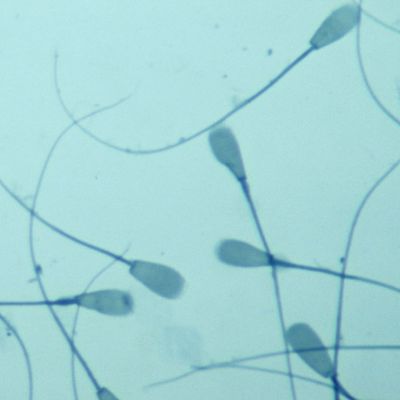
Even for people who, for whatever reason, can’t conceive naturally, there’s an ever-growing list of alternative ways to make a kid. Uterus transplants are now a reality, even if the first one failed last month due to complications. Earlier this year, an FDA panel recommended approval for “three-parent babies,” a not-quite-accurate term for a technique that replaces diseased mitochondrial DNA in the mother’s egg with DNA from a healthy donor to avoid passing genetic conditions on to the embryo (As the BBC reported last year, the resultant baby has only around 0.1 percent of its genetic material from the donor, who has no legal claim to the child; it’s not really three parents so much as two parents and change.) In October, GQ profiled Ed Houben, a prolific Dutch sperm donor who provides his services the old-fashioned way, sleeping with women who want to get pregnant without the cost or hassle of a sperm bank; at the time the article was published, he’d fathered 106 babies.
But what about when the medical issue standing in the way of conception is death? In Mosaic yesterday, Jenny Morber detailed the legally and ethically fraught practice of harvesting sperm from men who are already deceased (typically within 36 hours after death, though a handful of cases have had a longer window). The procedure, she explains, can be done in one of a few ways: removing the sperm with a needle, stimulating the corpse into ejaculation, or removing a larger section of the reproductive system, and either taking the sperm from there or preserving the entire piece of tissue for later use.
In some cases, spouses or partners want the sperm to have a child with the man they’ve lost. In others, the parents of the deceased want their child’s sperm to create a grandchild — a request that becomes even more complicated if the dead man’s partner doesn’t want the kid, or if there’s no partner to speak of.
Morber’s story is fascinating, sad, uncomfortable, and worth reading in full, but at the heart of the issue is who, exactly, needs to give consent — is it okay to treat a dead man as a sperm donor if he hadn’t expressly indicated that it was okay before he died? On the other hand, posthumous sperm retrieval likely isn’t a scenario that many men prep for, so who gets to decide what he would have wanted?
Law professor Glenn Cohen says this question is almost as old as philosophy itself. There are two main camps. “One says… if you can’t experience anything … how we can talk cogently about you being harmed?” he says. “The other camp says no, your life can go better or worse depending on what happens to you after you are dead.” For those in this camp, he says, it’s much more natural to think that banning posthumous retrieval is necessary to prevent harm to the dead….
The American Society for Reproductive Medicine’s position is that post-mortem sperm requests should be granted only to surviving spouses or life partners, and that there must be a grief period prior to the sperm’s use. Notably, it counsels that medical centers “are not obligated to participate in such activities, but in any case should develop written policies.”
Because the situation is relatively rare, though, many hospitals have no such policy in place. And even if the sperm is retrieved, and a child born as a result, a whole new set of legal issues arises, some of which vary state by state. Arizona, for example, holds that the children of these men are entitled to collect their Social Security benefits; California doesn’t, on the grounds that the kids weren’t dependents at the time of their fathers’ death.
And some evidence suggests that postmortem sperm retrieval is on the rise, meaning that there’s still plenty of uncharted territory to explore. “It’s worth remembering that for every case reported in the media, Morber noted, “there are likely many more people privately requesting the procedure and quietly succeeding, or not” — each one setting new precedents and raising new questions along the way.




